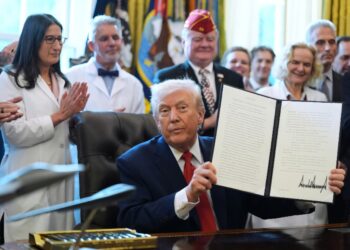In a significant political move, former President Donald Trump has selected Senator J.D. Vance (R-OH) as his running mate for the 2024 presidential election. This choice could have notable implications for U.S. marijuana policy, given Trump’s inconsistent record and Vance’s conservative stance on cannabis reform.
Vance, elected to the Senate in 2022, has limited experience with marijuana policy. However, his actions and statements align him with Trump’s views on several key issues. Both politicians support states’ rights to establish their own marijuana laws and oppose federal adult-use legalization. Vance also opposes incarcerating individuals for low-level possession.
Despite this, Vance has expressed reservations about certain marijuana reforms. He voted against the Secure and Fair Enforcement Regulation (SAFER) Banking Act, arguing it might inadvertently facilitate illicit drug trafficking, including fentanyl. Vance has also suggested that states with legalization should increase enforcement activities and voiced concerns about public cannabis use, citing personal anecdotes about its negative impact on public spaces.
Trump’s fluctuating stance on marijuana adds uncertainty to the potential for reform under a Trump-Vance administration. While Trump has sometimes supported states’ rights and hinted at leniency for low-level offenders, his overall position on marijuana remains ambiguous. Vance’s opposition to cannabis banking reform further complicates the prospects for legislative progress.
In summary, Vance’s position on marijuana policy can be characterized as cautious and conservative. He prioritizes public safety concerns and emphasizes the need for careful regulation. As the election approaches, Vance’s stance may be scrutinized, especially given Ohio’s recent move to legalize adult-use marijuana and the increasing acceptance of cannabis reform among younger conservatives.
The Trump-Vance ticket, if elected, could influence the direction of U.S. marijuana policy, with potential implications for state-level legalization, banking access for cannabis businesses, and broader federal reform efforts. However, significant changes are uncertain, as both candidates’ positions remain cautious and somewhat restrictive.
Read the whole article from MarijuanaMoment here.













